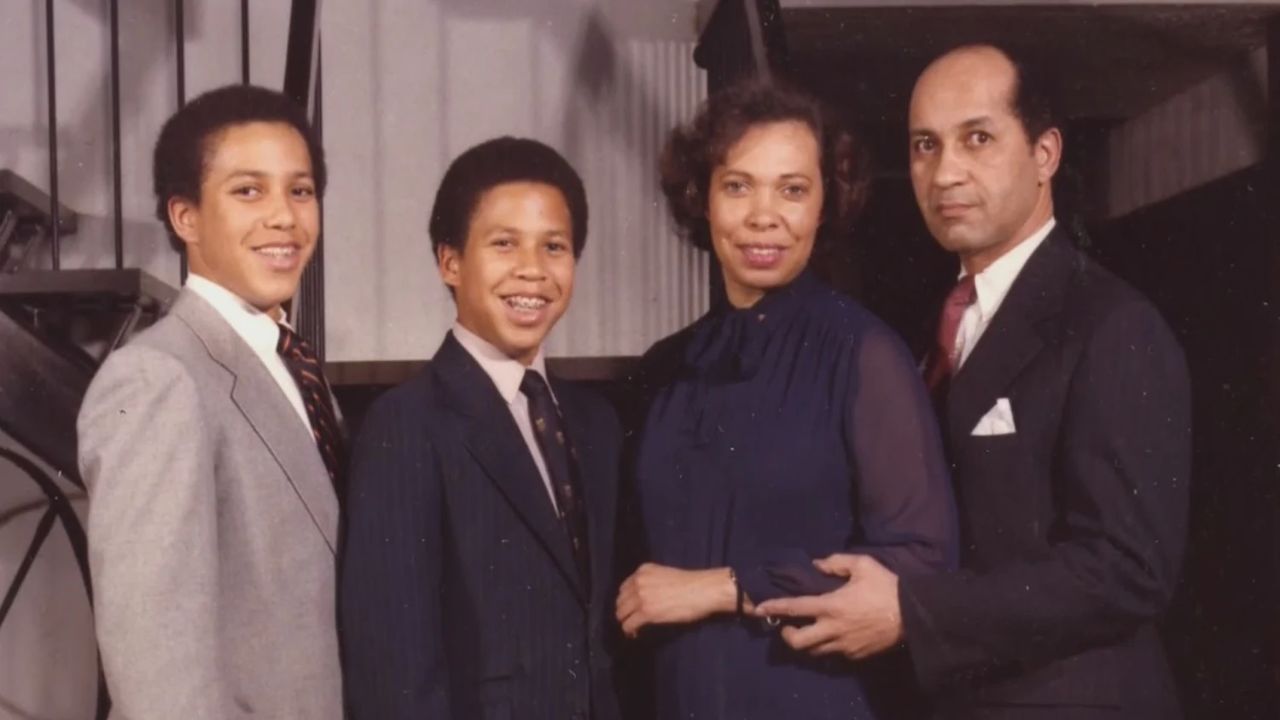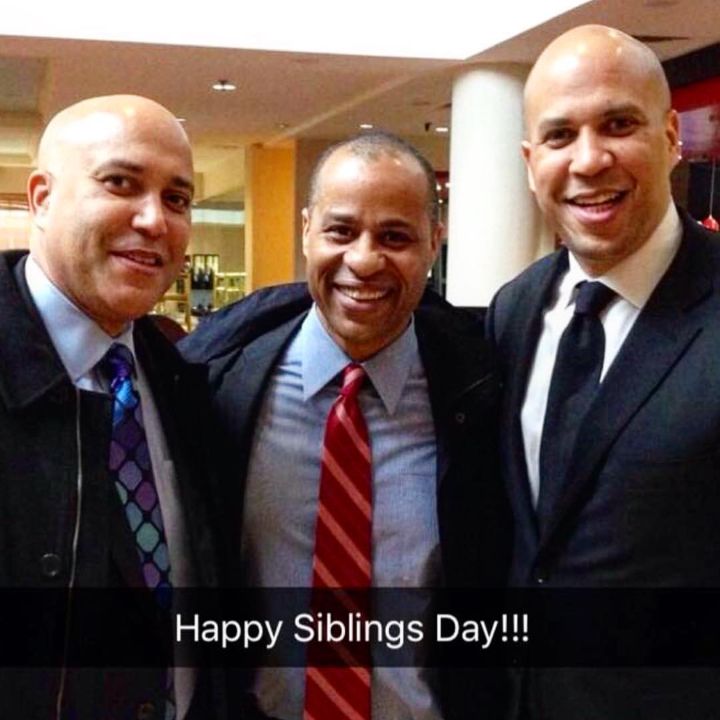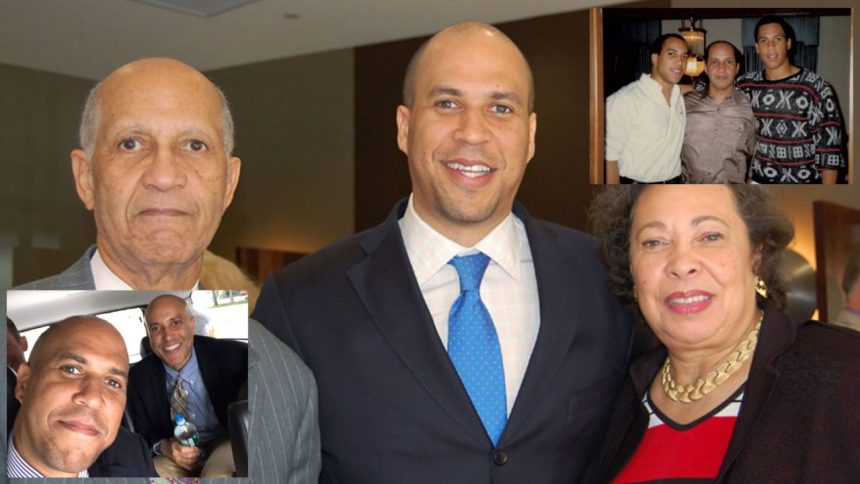Cory Booker’s family story revolves around the deep roots that stretch across continents and cultures. Born on April 27, 1969, in Washington, D.C., Cory Anthony Booker was raised in Harrington Park, New Jersey, a predominantly white suburb about 20 miles northeast of Newark. His parents, Carolyn Rose Jordan and Cary Alfred Booker, were trailblazers in their own right. They were among the first Black executives at IBM, a monumental achievement in an era when corporate America was still grappling with racial integration.
Cary Alfred Booker, who passed away in 2013, and Carolyn instilled in their son a fierce commitment to education, service, and social justice. The family’s spiritual foundation was built at a small African Methodist Episcopal Church in New Jersey, where Cory grew up immersed in the rhythms of faith and community.
All About Cory Booker’s Parents, Ethnicity, and Siblings
Cory’s ancestry is as rich as it is diverse. Through the PBS show Finding Your Roots, he discovered his Sierra Leonean heritage, adding another layer to his identity. His maternal great-grandfather was white, and he also has Native American ancestry, making his background a mosaic of experiences that shaped his worldview. This blend of cultures and histories likely fueled his passion for bridging divides, whether in politics or personal relationships.
Family wasn’t just about mom and dad for Cory. He has two older brothers, Cary Booker and John Taylor, who played pivotal roles in his life. Cary, often humorously referred to by Cory as “The Better Booker,” was more than a sibling. He was a mentor, a third parent, and a source of unconditional love. In a heartfelt 2022 birthday tribute, Cory revealed how Cary had suffered a serious stroke but faced recovery with “grace and grit,” teaching him lessons about perseverance.

John Taylor, though less publicly visible, is another pillar in Cory’s life. The brothers share a bond that’s both playful and profound. Cory once joked on social media about being the “young one” in the family, despite towering over them at 6’4″, and quipped about reminding them of his height advantage.
The Booker siblings’ dynamic is a mix of warmth and gentle rivalry. In a 2016 Facebook post, Cory shared a photo of the three brothers with the caption, “Without SnapChat, I wouldn’t know there are ‘Days’ like this.” The post celebrated National Siblings Day, but it also hinted at the humor and humility that define their relationship. Cary’s career path intersected with Cory’s public life in unexpected ways. A former co-founder of the troubled Omni Prep Academy charter school in Memphis, Cary faced scrutiny when New Jersey Governor Phil Murphy appointed him to a $150,000-a-year role overseeing early-childhood education in 2019.
The school had closed in 2016 due to financial and academic struggles, but Cary defended his tenure, calling it “the most challenging” of his career. Cory, ever the loyal brother, stayed publicly supportive, though the episode briefly cast a shadow on his own education policy stances during his 2020 presidential run.
Cory’s personal life has been a subject of curiosity, especially his romantic relationships. He’s never been married, earning him a spot on Town & Country’s “Top 40 Bachelors” list in 2013. For years, he kept his dating life private, though he’s openly identified as a “straight male” and joked about needing to “date more” to find a lifelong partner. In 2019, actress Rosario Dawson confirmed their relationship to TMZ, sparking media buzz. The couple split in 2022, but not before Cory made headlines for writing a leniency letter to the judge sentencing Theranos founder Elizabeth Holmes, calling her potential for redemption.

Ethnicity and identity have always been central to Cory’s narrative. Growing up Black in Harrington Park, he faced subtle and overt racism. His parents’ battle to buy a home in a white neighborhood became a formative story he often recounts. At Stanford, where he earned a BA in political science (1991) and an MA in sociology (1992), Cory confronted his own biases.
In a startling 1992 column for The Stanford Daily, he admitted to having “hated gays” as a teenager, a revelation that contrasted sharply with his later advocacy for LGBTQ+ rights. By 2013, he’d turned the tables on homophobic critics, refusing to deny rumors about his sexuality on principle. “I hope you are not voting for me because you are making the presumption that I’m straight,” he fired back at detractors on Twitter.
The Bookers’ legacy is one of breaking barriers and building bridges. From IBM boardrooms to Newark’s City Council chambers, from Rhodes Scholarships to Senate filibusters, Cory’s journey is inseparable from the people who shaped him. His parents’ grit, his brothers’ camaraderie, and his own reckoning with identity all weave into the fabric of his public service. Whether shoveling snow for a constituent or delivering a 25-hour Senate speech against Donald Trump’s policies, Cory Booker carries his family’s story with him, a reminder that the American dream is a collective endeavor.



